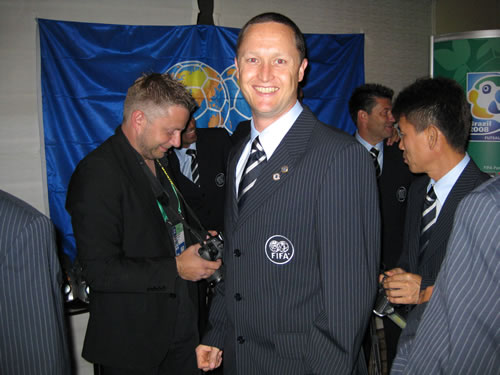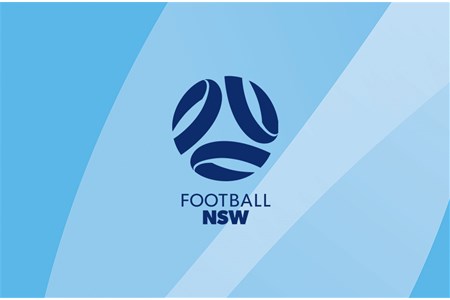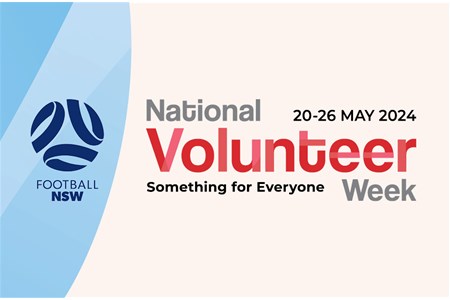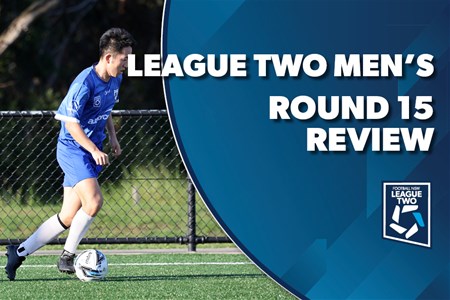Futsal Premier League Referee Scott Kidson at World Cup in Brazil


Scott Kidson will be representing Australia at the 2008 FIFA Futsal World cup this year as one of only 32 referees chosen world-wide. We thought it was important to get a top level Referees perspective on the sport we all love.
F4A : Hi Scott, you?ve played and reffed at the highest levels, and have also been involved in coaching. Whats your background in Futsal and how did you get started? What appealed to you in Futsal over Football?
SK : I remember playing a one night competition when I was about 12, but I started playing regularly at my local futsal competition at my local basketball centre when I was 17.
As a kid I was nuts about ?soccer?. Futsal was a natural progression after the season finished in outdoor. I was brought into my local Futsal State League team in 1993 and from there it was a natural progression to Futsal state teams. I played some federation level football in my early 20s, but stopped playing football in 1997 to concentrate fully on futsal. To me the outdoor game was not as exciting as its little brother. I was fortunate enough to travel with the Futsalroos to play against Portugal in Porto in 1999.
Futsal appealed more to me because I had a good deal of speed and with smooth rolls and even bounces my less than brilliant ball skills had a better chance. Also, futsal is all about the team. I group of semi-decent players with a strong team ethic will beat a team with individual skill but no cohesion. I like to think I was very team driven which made futsal perfect for me.
F4A : Why then the move from playing to Refereeing?
SK : I refereed football as a kid and enjoyed it a lot. As a player I was always up on the laws because I wanted to make sure I could do whatever was allowable when I was on the pitch and not give away free kicks. I got my futsal referee?s ticket in 2001 to help out at the local centre.
Although my ability to compete as a player at the elite level was waning, my competitive drive was still there. I knew there were opportunities for me to have a career as a referee so after the 2004 Nationals, I made the move across to refereeing.
F4A : After a reasonably quick move up through the Australian Refereeing ranks to the international level, was being selected to Ref at the 2008 World Cup a surprise? Did it happen much faster than you expected?
SK : As it happens, being named has lost me a bet. Pedro Galan Nieto, the legendary Spanish futsal referee, was one of the presenters at the AFC Elite Panel seminars this year. He bet Chris Colley and I that there would be an Australian referee in Brazil. We disagreed so a bet was made that the loser would buy the drinks when we were next together. I guess I?m in for an expensive World Cup.
The biggest surprise for me however was finding seven AFC referees on the appointments list. We were told earlier in the year there would be only four places. While you always have hope you have done enough, I wasn?t really expecting to be one of the Asian group. AFC has a number of very experienced officials so I am honoured to have been selected after only two years on the FIFA panel.
F4A : Have you had to prepare yourself any differently leading up to the 2008 World Cup?
SK : FIFA have provided all 32 referees attending with a training program in the lead up. Having to fit it in around work, refereeing and other commitments has meant some late night and early morning sessions. The training is a little different because I know I am going to have to be at my best to keep up with the speed of the game and the experience of the players so there is a lot of motivation to train solidly and push myself.
F4A : In terms of the time and money it costs you to Referee, do you get compensated adequately for it at the local and International level?
SK : My involvement in futsal, as I would expect is echoed by most people involved in Australia, is that ?I?m not in it for the money?. Paying referees at any level is mostly to attract people to doing one of the most unattractive roles in any participation sport. Compensation isn?t something I really think about – anything I get back is a bonus. I do hope that I earn my money though. My last two tournament appointments, the OFC World Cup Qualifiers and the World Cup have both been time away from work on leave without pay. I?ve used up all of my paid holidays with other tournaments like the FFA Nationals and the AFC Futsal Championships.
F4A : So if someone in Australia wanted to make a career out of Futsal refereeing is there the funding and/or the support for that to happen? I mention this as there are some good promising young referees out there, and it would be great to be able to keep them involved in the sport.
SK : Making a career out of futsal refereeing, like making a career out of anything, is a choice. It isn?t simply funding or support that will allow that to happen, it?s a decision by the individual to pursue it. No one can make such a choice and not expect to make some sacrifices with it. That said, a referee wanting to have a career is not chasing it alone. Every year I see improvement in the way in which all aspects of refereeing development is handled. There is certainly a big focus being put on development at all levels.
NSW each year run mandatory refresher courses for local referees to update them with the new Laws. An Elite group will be put together this year who will be running a fitness test and attending a seminar to ensure consistency in interpretation and standards. There will also be practical training open to all referees in NSW but aimed especially at the State League panels. Inspectors courses and advanced grade referees courses are being run by the FFA across the country as they standardise all of their course material. The inaugural Elite panel has also been formed this year in AFC for futsal referees to bring to top 20 referees in Asia to a higher level. The group met in January for three days in Malaysia to standardise our interpretation and increase our knowledge of the Laws. The funding and support look to be good from my point of view.
F4A : Referee?s more often than not get the short end of the stick in most sports, Futsal being no different. Everyone thinks they are right and referees need to develop a hard skin to continue in the sport. I?m sure everyone reading this who has ever played a match has had a run-in with a ref at some point. Have you noticed any improvement in the treatment of Futsal referees since you started, or does it frustrate you to see things no different to how they were in the past?
SK : Referees are always going to be brought into question, be it because someone watching is not up to date with the Laws and their interpretation, or because the referee makes a mistake. Referees are only human. I wouldn?t say I was frustrated at the treatment of referees – however there is always room for improvement in the interaction between players, coaches, spectators and officials. Personally, I think our referees are getting better on average, so I guess there has been an improvement in the treatment of referees. I know that my association is very open to interacting with clubs to answer any questions they may have on the Laws or our interpretations, hopefully fostering better relationships.
F4A : Do you find it harder to ref local games now from a motivational point of view since you?ve been involved with various International matches on a much grander scale?
SK : I try to give my best on any game I officiate. I run just as hard refereeing a local under eights match as I do on an international. To those kids, that game is just as important to them as the AFC Championship semi-final and they deserve to get the best from the official on the touch line. That?s where I look to find my motivation for any match.
F4A : What does reffing at the World Cup level mean to you and where to from here?
SK : To me, refereeing at this level gives me a challenge. As a player at the top level, you want to get everything right, do the most for your team and get the right result. As a referee it?s no different. You want to make good decisions, be in the right position during the match and work with the other members of your team to get the best result.
From here, it is just a matter of being consistent and improving on my weaknesses so that I can put myself in the running to be appointed to any match. As the World Cup progresses, some of the referees will become surplus to requirements and cuts will be made. My aim is to still be there after the first cut, however with the experience in the referees attending I can?t be disappointed if I am one of the officials who gets an early mark.
F4A : Do you find the pressure is on you more in the local comps since a good percentage of the players would know you are a FIFA International ref?
SK : I don?t feel that there is any more pressure on me. As I said, every game is important to the participants so the players and coaches just want a referee who is committed to the game, consistent and fair. That?s what I try to do every time I put on the badge and enter the pitch.
F4A : So after many years involvement in the sport, what has been the best personal moment you have experienced in Futsal?
SK : Scoring in my first international was a pretty big moment, but I guess that refereeing the Japan v Iran semi-final in this year?s AFC Championship is hard to beat. The Thai crowd was very vocal and with the national supporter from the two countries also in fine voice I could hardly hear my whistle as I blew the kick off.
F4A : Do you still find time to play the game?
SK : I do have the occasional kick around with a group of work mates, but nothing too serious. Actually some of the most enjoyable games I?ve been involved in recently have been at referee?s training sessions when I travel overseas. There are plenty of frustrated players in the refereeing ranks and they get a chance to show their wares in the ?friendly? matches. Five on five for five minutes at a time. A couple of runs like that is just the ticket to keeping down my desire to make a comeback.
F4A : And for our final question, how do you see the current state of Futsal in Australia, do you think as sport we are headed in the right direction?
SK : I am fortunate to be in New South Wales where there is a strong domestic competition that gains more interest every year. Australia has moved into Asia which opens another set of doors to us. The FFA has just announced an independent review of futsal, like they have done with the men?s, women?s and youth ranks before it. The findings of those previous reviews have changed the football landscape in this country. The round ball game is going from strength to strength, so I look forward to seeing the findings and resolutions from this futsal report.
F4A : Thanks for answering our questions Scott. We wish you all the best at the upcoming Futsal World Cup and will keep an eye out for you on TV!
Written by Futsal4all
http://futsal4all.com/2008/09/the-futsal4all-interviews-scott-kidson/


